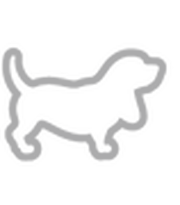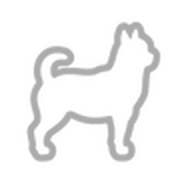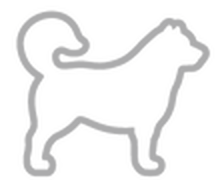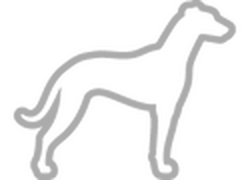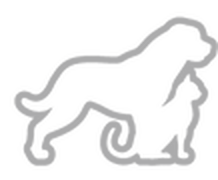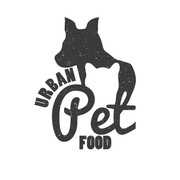WHAT DO I FEED MY DOG OR PUPPY?

What do I feed my dog?
There are a number of potential diets for dogs, but it can be hard to determine which one is best for your four-legged friend. To help you make an informed decision, keep these factors in mind when deciding what to feed your dog.
What dogs eat
It’s important to remember all dogs are individuals, and what diet might be fine for your friend’s dog may be completely inappropriate for your dog. When it comes to a daily diet for your dog, it’s important to consult with your vet.
Domesticated dogs are largely carnivores that eat some omnivorous foods so it is important to ensure your dog’s food is both complete and balanced for its stage of life, and if it has any medical issues.
It is entirely acceptable to feed your dog a pure dry diet. Or you can mix their diet up with some cooked or raw meat.
Many owners like to feed a raw meat diet to their dogs, and while this can suit some dogs very well, there are some important considerations you need to be aware of.
- Choose human-grade meat as some pet meat and bone products will contain preservatives that can be bad for your dog’s health.
- Practice impeccable food hygiene as the risk of both you and your dog getting a food-borne bacterial infection such as campylobacter or salmonella is high.
All our products come from human grade sourced meat and our Biological Raw Diet is nutritionally balanced for your dog’s diet.
Food in relation to your dog’s age
8–16 weeks
This is the age when many pups will enter their new home. It’s important to not make huge diet changes at this time as you might inadvertently cause a stomach upset.
Many breeders will tell you what they have been feeding your dog. Ideally, you will continue with this, and introduce the diet you wish to feed them in small incremental stages over a few weeks until you are feeding your pup your preferred diet completely.
Next you need to decide whether to feed dry, wet food or a combination. There is no research to support that one food form is better than the other and so this choice is really based on personal preference. As long as you ensure your puppy gets all the nutrients they need for growth and development.
Our Urban Pet Food Puppy Dry – https://www.urbanpetfood.com.au/product/puppy-grain-free-dry-food/ is a suitable dry for puppies.
You can add cooked meats such as our Loaf or Gourmet rolls as you wish; however, the main diet needs to be the balanced dry.
https://www.urbanpetfood.com.au/product/chicken-loaf-slow-cooked-grain-free-roll-2/
https://www.urbanpetfood.com.au/product/roast-chicken-rice-slow-cooked-rolls/
Treats can be added to train. We have some puppy friendly treats that can be introduced to train your fur baby.
Some puppy friendly treats are below or go to the for all our range
https://www.urbanpetfood.com.au/product-category/food-types/treats/
Beef Liver : https://www.urbanpetfood.com.au/product/air-dried-beef-liver-150g-uncut/
Beef Strips : https://www.urbanpetfood.com.au/product/beef-strips-air-dried-2/
Chicken Strips : https://www.urbanpetfood.com.au/product/air-dried-chicken-strips/
Raw diets are not recommended for very young pups as they don’t have the immune system development to cope with a high bacterial load. It is also very difficult to balance a raw diet for growing puppies.
Puppies have a high nutritional demand and can’t go for long without food. It’s very important to feed small meals regularly.
16 + Weeks
At the 16-week mark, feel free to introduce some raw meaty bones gradually. It’s around this time that permanent teeth are erupting, so this encourages them to chew actively on something other than your shoes or couch (it won’t affect or benefit teeth health at all). For puppies, one bone a week is generally enough; and remember, the meatier – the better.
We have our Marrow Bones which are a great boredom buster and are safe and healthy served raw to your dog. They can negate the need for expensive dental treatments and are one of the safest chew toys around – occupying them for hours with chewing, carrying and burying fun. Marrow is a natural source of protein and fat, and is rich in calcium, phosphorus and bone building materials. It contains glucosamine and chondroitin which is beneficial for joints and is rich in Omega 3 fats improving skin, joint and cellular health. The bones are conveniently cut so your dog can access the marrow easily for their enjoyment.
Don’t be alarmed if your puppy becomes possessive over its food when it’s eating. Always discourage children from getting too close to them when they’re eating, and be aware they may growl or snap at you if you attempt to take the food away. You can prevent the development of food guarding by handfeeding your pup in the early stages. If your pup already guards, please seek help from a veterinarian.
When you’re introducing a new food to your pup, keep an eye on it at all times for any signs of illness or distress. Like humans, dogs can have intolerances or be allergic to things, or a certain food simply may not agree with your pup. Note down what it is you fed your puppy if a reaction or illness occurs and pop that on the no-feed list.
As your pup gets older, you can gradually reduce the number of feeds to twice per day. Try to ensure you aren’t overfeeding or underfeeding your dog. It can be tricky as most people will assume bigger breeds need more to eat; however, this isn’t always the case. Overfeeding your puppy can lead to health issues such as musculoskeletal problems later in its life.
Adult Dogs
Adult dogs should be fed either once or twice a day. Use a high-quality dog food, making sure it’s appropriate for the life stage and health status of your dog.
Our Ancestral Recipes (muesli ) for dogs is a balanced diet for dogs and is Complete and balanced for everyday feeding. With local air dried meat, offal, selected seasonal fruit and vegetables and with added vitamins and minerals. Naturally high in proteins and with no artificial preservatives.
https://www.urbanpetfood.com.au/product-category/food-types/dry/air-dried/
Slow Cooked Loaf and Gourmet Rolls :
https://www.urbanpetfood.com.au/product-category/food-types/slow-cooked/slow-cooked-rolls/
Raw Food and Biological Raw Diet :
https://www.urbanpetfood.com.au/product-category/food-types/raw-diet/
Raw Meaty Bones :
https://www.urbanpetfood.com.au/product-category/food-types/raw-diet/raw-meaty-bones/
Treats :
https://www.urbanpetfood.com.au/product-category/food-types/treats/
Small or medium breed dogs are generally deemed to be ’adults’ from 12 months of age, whereas your larger breed dogs take a little longer and don’t really become ‘adults’ until 18–24 months.
Check with your vet re the breed and size of your fur baby and when to change over from puppy food to adult food.
The same feeding guidelines apply to adult dogs. Ensure the diet you choose is complete and balanced. You can add meat (cooked or raw) for variety. Choose large, raw, meaty bones. Most importantly, don’t over feed.
Senior Dogs
For senior dogs, the need to keep tabs on their health is crucial. Many older dogs have chronic health issues that can be affected or improved by the diet you feed.
For some senior dogs, frequent smaller meals will keep them happy and satisfied. For others, it’s about keeping things the same as before. Some senior dogs may need more fibre, protein or other nutrients to ensure their bodies are taken care of. Speak to your vet about your dog’s specific needs.
Keep certain foods out of reach
When it comes to your pets, not everything people eat is safe for them. It’s important to know that while this list is not comprehensive, these are the most common household foods that you’ll need to protect your pup from.
Chocolate
While dogs love the smell of chocolate, it’s toxic for them, and should never be fed to them.
Onions and garlic
Onions are very toxic to dogs. They cause oxidative damage to the red blood cells causing them to rupture leading to anaemia.
Citrus
The citric acid found in fruits such as grapefruit, lemon, lime can cause diarrhoea, vomiting and at the very worst end of the scale, depression of the central nervous system.
Milk and lactose
Some dogs may be lactose intolerant, resulting in stomach upsets like vomiting or diarrhoea. If your dog reacts strongly to milk products, it’s best to avoid them.
Raw yeast dough
While your dog can have small bits of bread, raw dough is definitely a no-no. As the yeast rises, it can cause gas in the dog’s digestive system, which is painful and may potentially rupture its stomach or cause gastric dilation and volvulus.
Fatty foods
If you’re looking at maintaining a healthy weight for your dog, sweet and fatty foods should be avoided. Also, fatty foods can lead to illnesses such as pancreatitis.
Salty foods
Salt is an essential component to your dog’s diet helping muscle and nerve function. However, some dogs with chronic disease such as kidney, heart or liver problems may need to watch their salt consumption. It is always important to get advice from your vet regarding the diet of your pet.

